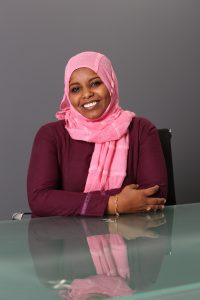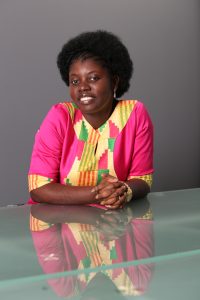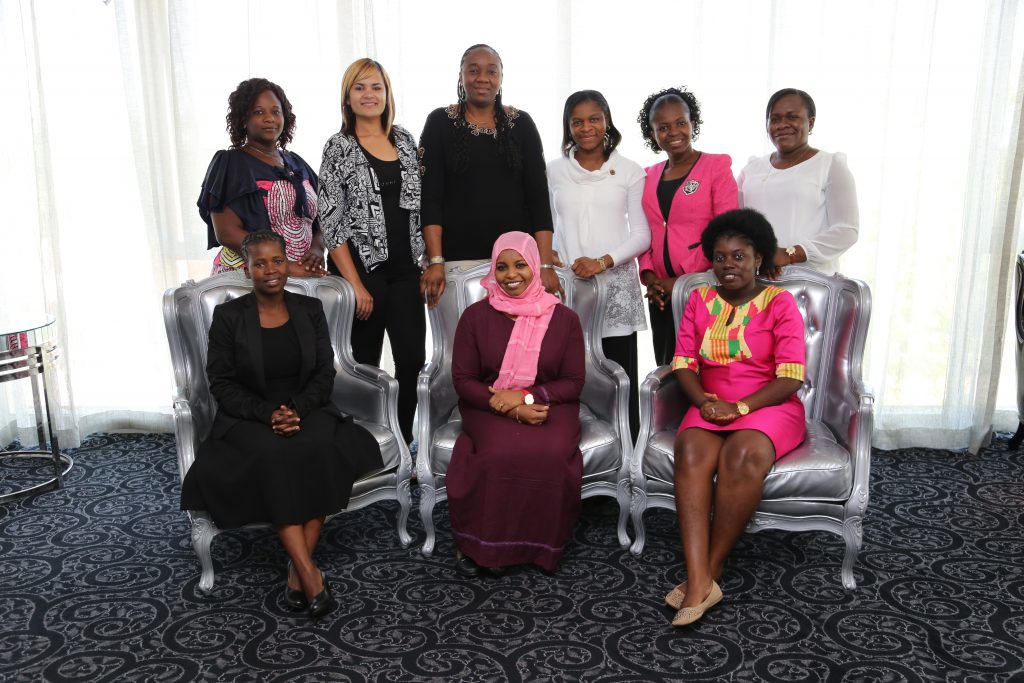Arwa Elaagip
 As a Medical entomologist and lecturer at the University of Khartoum in Sudan, Arwa Ellagip‘s work entails is examining midgut RNA molecules of the sand fly for the purpose of developing a transmission-blocking vaccine and a suitable insecticide solution to prevent the spread of black fever in Sudan.
As a Medical entomologist and lecturer at the University of Khartoum in Sudan, Arwa Ellagip‘s work entails is examining midgut RNA molecules of the sand fly for the purpose of developing a transmission-blocking vaccine and a suitable insecticide solution to prevent the spread of black fever in Sudan.
“I have always had a love for science since I was a little girl who liked exploring and playing with insects outside.
“I’m currently researching midgut transcriptomes of the sand fly which is known as vectors of visceral Leishmaniasis (or black fever) in Sudan and eastern Africa. This species specificity is driven by several molecular factors that allow the parasite to infect, survive and multiply within the midgut of the sand fly, and permit transmission to a suitable vertebrate host during a blood meal.
“Through identification and characterisation techniques, I hope to discover the regulatory and biochemical pathways within these vectors as potential biopharmaceutical transmission blocking vaccine candidates, and targets for insecticide development.By sharing my expertise, I hope to produce scientific personnel who are capable of initiating and conducting research in infectious disease vectors, and are driven to participate in similar international research projects in medical entomology and vector control.
“Ultimately, I hope to contribute to the understanding of the molecular interactions between Leishmaniasis and the sand fly vector, to open up new avenues for basic research towards the control of this neglected vector-borne disease and enhance the development of new and improved vaccines, while aiding prevention strategies and control policies for Leishmaniasis.
“My previous studies have enriched my knowledge as a scientific research professional. I am driven to use my expertise and experience to help local communities and to enhance quality of life worldwide.
“With the grant, I will complete my PhD work including research, field work and sampling.”
Irene Nsiah-Akoko
 Doctoral fellow at the Ghana Atomic Energy Commission Irene Nsiah-Akoko is concerned about the connection between high levels of radon and cancer, which affects many people around the world. At the moment, her research is focused on her native country, with hopes to expand outside the borders.
Doctoral fellow at the Ghana Atomic Energy Commission Irene Nsiah-Akoko is concerned about the connection between high levels of radon and cancer, which affects many people around the world. At the moment, her research is focused on her native country, with hopes to expand outside the borders.
“In recent years, the radioactive contamination of soil, water and air reported in some areas of the country, has raised questions among scientists. This includes the contamination of groundwater by radon, which is extremely hazardous to human health, especially in reservoirs in granitic and gneissic terrain.
“I’m working on radon gas which is commonly found in water and soil and its connection with lung cancer because research in the US has shown that radon can cause lung cancer. I work to demarcate areas in Ghana that have high radon profiles so that I can get a reference level for the country and develop a radon map.
“The research I’m doing right now is focused on knowing the concentrates of radon in water, soil and indoors. After I’m done with that, I will then be able to do a risk calculation for the population where I did the study so that we will know whether the population is taking in high levels of radon or if the levels are just within the minimum level according to the World Health Organisation (WHO).
“The award will really help me in continuing my research because I’m currently in the sampling stages. The money will go towards my travels to the different villages where I’m conducting my research. It will also help me to collaborate with other scientists from different universities to analyse the samples I collect.
“I foresee a future for myself filled with new and exciting challenges, solving scientific issues and advocating science as an ideal field of study for women.”

